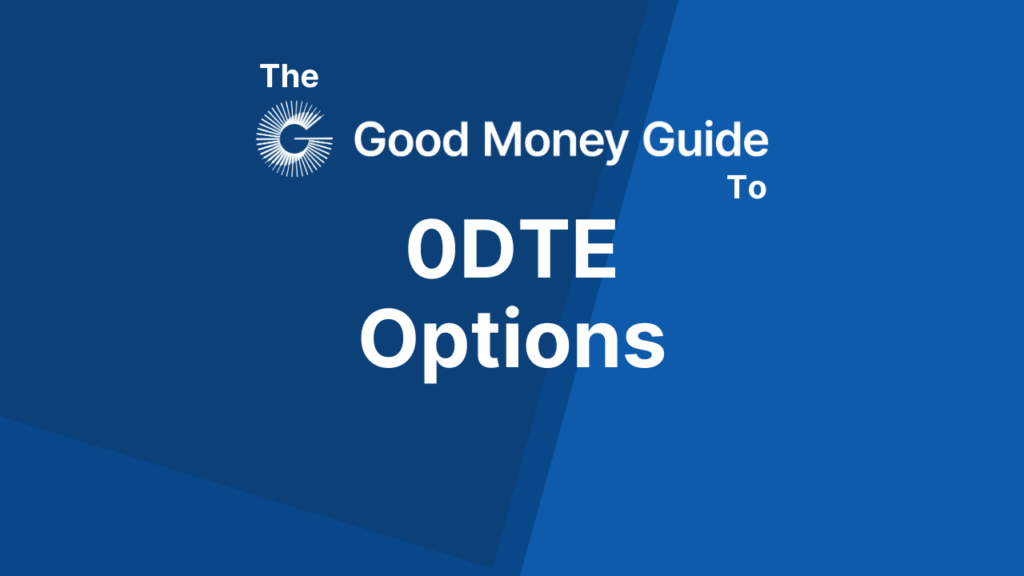Can you trade 0DTE Options in the UK?
Yes, you can trade 0DTE options in the UK by trading normal options on the same day they expire or by having a professional trading account.
Zero-day options, or ‘0DTE’ for short, have become popular trading instruments in recent years. Today, they account for around half of the S&P 500’s total options volume – a ten-fold increase on the figure in 2016.
In this guide, we are going to look at how zero-day options work and discuss their pros and cons. We’ll also look at how traders can access them in the UK.
What are zero-day options?
Zero-day options are options contracts that expire on the same day that they are traded. They work in a similar way to regular options, which are contracts that give traders the right, but not the obligation, to buy or sell a specified amount of an underlying asset at a predetermined price by a certain date.
With zero-day options trading, traders aim to profit from rapid price changes as options contracts approach their expiration. By entering and exiting positions within the same day, traders can potentially capitalise on small price movements in different securities.
It’s worth noting that a 0DTE option could be a longer-term option that has reached the last day of its lifecycle, or it could be a specific option that’s listed only for a single day. In the US, 0DTE options are issued every day from Monday to Friday on indexes such as the S&P 500 and the Nasdaq.
Where can you trade zero-day options in the UK?
In the UK, options trading is not as big as it is in the US. And currently, it’s not possible to trade options on a lot of major UK investment platforms. However, there are a few UK brokers that provide access to these financial instruments. Robinhood, IG, Charles Schwab, Saxo, and Interactive Brokers are some examples of brokers that do offer options trading in the UK.
Brokers that offer access to 0DTE options in the UK include:
- IG – IG offers access to US-listed options and futures.
- Interactive Brokers – With Interactive Brokers, you can choose from four levels of options trading permissions to find choices that are aligned with your options trading strategies.
- Saxo – Saxo offers access to options on stocks, indices, interest rates, futures and commodities.
0TDE options trading in the US is much more popular, and there are more brokers that offer the product.
The pros and cons of trading 0DTE options
Like any trading strategy, trading 0DTE options has its pros and cons. Understanding these pros and cons is important and can help you decide if the trading strategy is right for you.
One of the main advantages of trading 0DTE options is that there’s potential for quick returns. With these options, traders can generate returns within hours or even minutes by capitalising on short-term price movements in different securities.
Another advantage is that there’s no overnight risk exposure. With these instruments, there can be a sense of security knowing that your positions will be closed at the end of the trading day.
0DTE options are also often cheaper to buy than longer-dated options. This is because time-to-expiration is a variable that affects option pricing.
On the downside, there is potential for rapid losses with 0DTE options trading. As these options approach their expiration date, their value decreases exponentially.
It’s worth pointing out here that options that are not profitable at their expiration date tend to expire worthless. So, 100% losses are very common with this strategy.
The lack of time until expiration also forces traders to make decisions quickly. This can increase stress and pressure, especially for those who are inexperienced.
How are zero-day options used by traders?
0DTE options are a versatile tool that can be used in a range of scenarios. However, the main way they are used today is to speculate on short-term price movements in stocks.
Often, traders buy 0DTE options in the hope that they can quickly profit from a last-minute swing in price. Due to their short lifespan, these options are highly sensitive to price movements in the underlying assets, and they can produce explosive gains if traded successfully.
Zero-day options trading example
For example, let’s say there’s a stock that is trading for $20, and you believe that it is going to rise that day. You can purchase a $20 call 0DTE option on the stock for $0.10 (1 contract is 100 shares).
Given that you are bullish on the stock, you decide to buy 10 contracts. So, the total cost of the options trade is $100.
The table below shows a few different scenarios.
| Stock price | Option value | Total profit | Stock gain/loss | Option gain/loss |
| $19.00 | $0 | -$100 | -5% | -100% |
| $20.00 | $0 | -$100 | 0% | -100% |
| $20.10 | $100 | $0 | 0.5% | 0% |
| $21.00 | $1,000 | $900 | 5% | 900% |
If the stock ends the day at $20 or below, you lose the entire $100. However, if the stock rises above $20.10, you can potentially generate big gains. For instance, if the stock rises 5% to $21, you generate a gain of 900% on your options. These rapid gains are what traders of zero-day options are hoping for (these types of gains often don’t materialise though).
What are some alternatives to zero-day options?
There are lots of alternatives to zero-day options if you’re looking to capitalise on small price movements on specific securities. These include:
- Leveraged ETFs – These are ETFs that offer leveraged exposure to stocks or indexes. They are offered by companies such as Leverage Shares and ProShares and available on platforms such as Hargreaves Lansdown and Trading 212.
- CFDs – CFDs (Contracts for Difference) are trading instruments that allow you to capitalise on the price movements of specific securities without owning the underlying securities. With these instruments, you can use leverage to increase the size of your trade.
- Spread bets – Spread bets are similar to CFDs in that they allow you to make leveraged bets on specific securities without owning the underlying securities. One difference, however, is that profits are not subject to tax.
0DTE options: a high-risk game
In summary, there is potential for quick financial gains with zero-day options trading. But there is also potential for rapid losses, so it’s a risky strategy.
Due to the high level of risk associated with options, most experts do not recommend pursuing options trading strategies. Experts are far more likely to recommend a long-term approach to investing, such as investing in index funds or ETFs.

Richard is the founder of the Good Money Guide (formerly Good Broker Guide), one of the original investment comparison sites established in 2015. With a career spanning two decades as a broker, he brings extensive expertise and knowledge to the financial landscape.
Having worked as a broker at Investors Intelligence and a multi-asset derivatives broker at MF Global (Man Financial), Richard has acquired substantial experience in the industry. His career began as a private client stockbroker at Walker Crips and Phillip Securities (now King and Shaxson), following internships on the NYMEX oil trading floor in New York and London IPE in 2001 and 2000.
Richard’s contributions and expertise have been recognized by respected publications such as The Sunday Times, BusinessInsider, Yahoo Finance, BusinessNews.org.uk, Master Investor, Wealth Briefing, iNews, and The FT, among many others.
Under Richard’s leadership, the Good Money Guide has evolved into a valuable destination for comprehensive information and expert guidance, specialising in trading, investment, and currency exchange. His commitment to delivering high-quality insights has solidified the Good Money Guide’s standing as a well-respected resource for both customers and industry colleagues.
To contact Richard, please see his Invesdaq profile.




